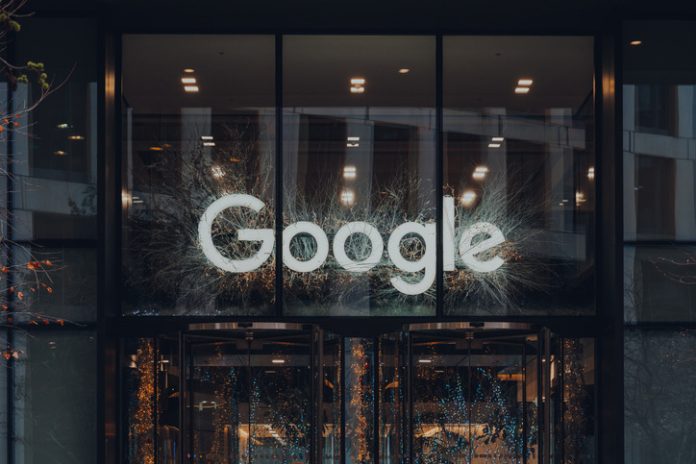By Emil Bjerg, journalist and editor
With a sophisticated algorithm and a knack for user experience, Google forever changed how we find knowledge online. But the search engine celebrates its 25th anniversary under unfamiliar pressure from antitrust cases and AI competitors.
“”How do you cut a pineapple?”
It wasn’t that long ago when finding the answers to simple questions like this wasn’t all that simple. You might call a friend or family member who was handy in the kitchen, or hope that a cookbook at home had some instructions”.
With these words, Google celebrates its invention, Google Search, which has forever changed how we find knowledge online.
Over its 25-year existence, ‘to Google’ has become a verb as ingrained in everyday language as terms like ‘to search’ or ‘to think’.
Google is – as Forbes puts it – the brainchild of the two founders, Larry Page and Sergey Brin. They started working together as doctoral students at Stanford in 1995 with an interest in opening up the World Wide Web.
“We both found each other obnoxious,” Brin recalled to Wired in 2005. But they would also quickly become close friends with complementary skills and personalities: Page, with a visionary approach, focused on long-term goals and big-picture thinking, and Brin, charismatic and hands-on, championed innovation and managed day-to-day operations.
After meeting in 1995, they founded Google 25 years ago, on the 27th of September, 1998, when they moved from Stanford to a rented garage in Menlo Park, California. They brought with them a meticulously crafted recipe for success.
The idea sounds simple today but was revolutionary at the time. The pair wanted to create “a search engine that used links to determine the importance of individual pages online”.
A tweaked algorithm paved the way for search dominance
Brin and Page wanted to bring order to the fragmented internet of the 90s by determining the relevance of each individual page. Their central invention for that purpose was the algorithm ‘PageRank.’ Named not for the idea of ranking web pages but after Larry Page himself, PageRank revolutionized search by treating links between pages as votes of confidence. The more links a page had pointing to it, especially from other reputable pages, the higher its rank. This was a radical shift from the pay-to-play models of other search engines of the time.
Instead of prioritizing advertisers in the hierarchy of search results, their refined algorithm emphasized user experience. Unlike earlier search engines that ranked pages by the highest bidder, Google’s system considered factors like page quality, content, inbound links, and, importantly, relevance to the user’s query.
Add that Google was five to ten times faster than its competitors, and you had the recipe for long-lasting search dominance. Google out-competed MSN Search, Yahoo!, and AOL Search in 2002, when they became the most used web navigator in the so-called ‘search engine wars’.
It took 20 years to shake their comfortable position as unchallenged search leaders – this time in a hybrid between a search engine- and an AI war. We’ll return to that.
Expansion in years of ‘adult supervision’
Around the turn of the millennium, founders Brin and Page quickly discovered that they’d need to bring in a CEO with a talent for business strategy. That became Eric Schmidt, hired in 2001, who is said to have given “adult supervision” to the gifted but young and fun-loving founders.
Schmidt is also known to have had a vital role in the business development of Google, emphasizing fostering partnerships, exploring new revenue streams, and prioritizing user-centric innovation. His supervision is said to have helped transform Google from a search-centric company to a global tech powerhouse with multiple successful product lines.
Under Schmidt’s direction, Google successfully expanded into other arenas of information technologies, finding a market dominance not too different from what the original product did: from Google Docs and Gmail to Google Maps, Google Play, and Android. Schmidt was also instrumental in overseeing key acquisitions, including the $1.65 billion purchase of YouTube in 2006.
The majority of Google’s earnings, 58.1 percent in 2022 to be exact, come from selling ads; primarily on the search engine, but also on additional products like the aforementioned Gmail, Google Maps, YouTube, and Google Play, added to the portfolio under Schmidt’s supervision.
Google’s market dominance is also reflected in numbers. Alphabet, Google’s parent company, is the biggest tech company in the world, leading in front of other giants like Apple and Microsoft, with a market value of 1.34 billion dollars.
But the company’s global dominance is a double-edged sword.
Google: an antitrust case magnet
In 2018, the European Commission fined Google 4.24 billion Euros for “illegal practices regarding Android mobile devices to strengthen dominance of Google’s search engine”. Commissioner Margrethe Vestager accused Google of imposing restrictions on Android device manufacturers and network operators to ensure its search engine’s dominance.
The fine they got for that is, by far, the highest given by the European Commission in antitrust cases.
A year before, the same commission had fined them 2.42 billion Euros for “abusing dominance as search engine by giving illegal advantage to own comparison shopping service.” In total, the European Commission has fined Google a whopping 8.25 billion Euros.
Currently, they’re the center of another antitrust case, this one in the US. Here, the Justice Department has filed an antitrust lawsuit against Google, accusing it of monopolizing digital advertising technologies.
But the antitrust cases aren’t the main reason that Google, as of 2023, looks shakier than what we’ve been used to seeing since they became synonymous with search.
AI Wars: Making Google Dance
“I want people to know we made them dance,” Microsoft’s CEO Satya Nadella recently said about Google. While Google has long been a leader in AI research- and product development, the fresher and more risk-ready OpenAI was the fastest to make a broad, public launch of a generative AI. With Microsoft’s investment in OpenAI, Microsoft has gotten privileged access to integrate OpenAI’s crown jewel, ChatGPT, into its products.
The events unfolding over the past year have made people suggest that the future of search might not look like Google’s ‘10 blue links’. Maybe it’ll look more like the results we get when interacting with generative AIs like OpenAIs ChatGPT.
That’s a long-term threat to Google’s main revenue stream – ads in search. AI successfully integrated into other search engines is a threat in the short term.
This is what Microsoft has done with the long-ridiculed search engine Bing, which was mostly known to be unable to compete with Google. Until this year, it seems. Now, with ChatGPT integrated, a new AI-driven search war seems to have started.
According to Statista, from May 2023 to July 2023, Google’s global market share on desktop searches fell by 4,16 percent. In the course of the same two months, Bing’s went up by 2,38 percent. With other search engines in the statistic having less than three percent of the market share and showing little fluctuations, most of Google’s loss translates to Bing’s win.
But the fact that Google is perceived as being behind on AI-related products is not because of lack of foresight or AI initiatives.
AI First
Sundar Pichai took over from Eric Schmidt, from 2015 being the CEO of both Google and its parent company Alphabet. Pichai steered Google from a ‘mobile first’ to an ‘AI first’ approach in 2016. Prior to that, under Pichai’s direction, Google acquired DeepMind, a leading innovator in AI, in 2014.
DeepMind has since been involved in a number of AI projects at Google, from gaming to science to how to reduce costs and carbon footprint at data centers.
DeepMind’s advancements in AI is said to have the potential to be integrated into various Google services, from enhancing search algorithms to improving voice recognition in Google Assistant. Earlier in 2023, in what some read as a desperate decision, DeepMind merged with another of Google’s AI research teams, Google Brain, together forming Google DeepMind.
Just like Google has Google DeepMind, Microsoft has OpenAI. And a number of new serious competitors might show up in this moment – where it seems like everything from search to the future of technology is being negotiated. Just like it seemed in the 90s when Google started.
Therefore, Google can celebrate its 25th anniversary amidst an intense AI rivalry that has seen them to push launches of products like Bard – their generative chatbot – and Magi – their AI-powered search tool, not yet publicly available – earlier than what they had initially planned. The speedy launches from Microsoft, Google and other AI companies makes critics fear that ethics and careful consideration will be backgrounded as the race for future AI- and search dominance will be the priority for both companies.
So at 25 years, Google is at once the biggest tech company in the world and a company that is right in the center of domination, but also a company that – for the first time in two decades – dances to the tunes of its competitors.
And Page and Brin? After leaving most of the responsibility to a leadership team directed by Sundar Pichai, the new AI competition has seen the two return to central roles in the company they founded 25 years ago.




































